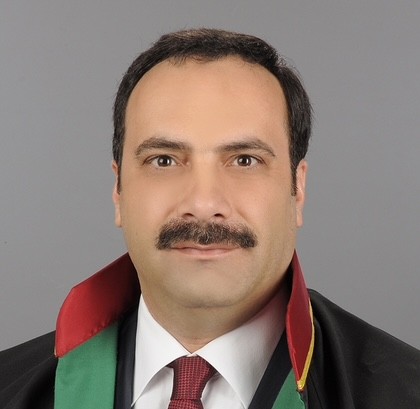Understanding Turkey’s recent history is crucial for accurately interpreting the present. Particularly, the social memory of the years before 1980 harbours the roots of today’s political climate. Those periods when corruption, nepotism, and the state’s cold, condescending face toward citizens became normalised had accumulated profound fatigue and a quest for justice in society. Military coups that occurred every decade targeted not only democracy but also the nation’s hope and sense of belonging. This traumatic legacy brought Turkey to the threshold of a new beginning by the 2000s.
Broad segments of society, regardless of being religious-secular or right-left wing, were seeking a way out of this fatigue. Symbolic oppressions like the headscarf ban and barriers blocking the path of Imam Hatip graduates were wounds that bled the social conscience. The Justice and Development Party (AKP) came to power in this atmosphere as a movement of hope. In this process, one of the strongest civil supports was undoubtedly provided by the Gülen Movement, known for its educational and dialogue activities spread across Anatolia.
From Representation to Domination: The Transformation of a Government
European Union reforms, democratisation packages, and civilianization steps characterised the early years of the AKP. During this period, the Gülen Movement supported Turkey’s democratization process with all its strength. However, over time, especially after the 2011 Constitutional Referendum, a distinct change was observed in the character of the government. The understanding of representative governance based on power-sharing gave way to centralised domination aimed at concentrating power in a single centre.
This transformation was embodied by merit being replaced by loyalty in the state mechanism. Every institution and individual with the potential to act independently began to be seen as a potential threat. The presence of qualified people raised by the Gülen Movement in bureaucracy, judiciary, and security forces conflicted with this new understanding of power. Anyone who opposed illegalities or did not pledge unconditional allegiance to the system was easily labelled as a ‘Gülen Movement member’ and became a target.
The politicisation of civil space was also noteworthy during this process. For example, the activities of aid associations like ‘Kimse Yok Mu,’ pioneered by Gülen Movement volunteers, gradually began to be presented as achievements of the government. This was a planned effort to transform civil society, contrary to its spirit.
The Breaking Point: December 17/25 and July 15
This purge plan, which had been in preparation for a long time, came to light with the corruption operations of December 17/25, 2013. The government characterised these investigations targeting four ministers and their relatives as a ‘coup attempt’ and became the beginning of one of history’s most excellent witch hunts. From this point on, the target was no longer just those investigating corruption allegations, but the entire Gülen Movement.
The climax of this process was the July 15, 2016, coup attempt, many dark aspects of which remain unilluminated. This event was not used as a breaking point in the construction of the regime, but rather as a planned engineering tool. The state of emergency declared under the pretext of July 15 and the decree laws issued darkened the lives of hundreds of thousands of people. This operation aimed not only to purge one group but also to intimidate the opposition, capture the judiciary, and redesign society.
Scapegoat or Real Perpetrator?
Today, we observe a conscious effort to hold the Gülen Movement accountable for the problems created by the regime. The fact that some circles appearing to be in opposition, along with the government media, voice the discourse ‘the Community brought the regime to this state’ is a great historical distortion. However, the support given to the AKP was based on a broad social consensus at that time, and among those who gave this support were many segments, ranging from liberals to leftists, from Kurdish politicians to Western circles. Portraying today’s victims as yesterday’s perpetrators serves only to absolve the real culprits.
Another misleading claim frequently repeated is that ‘the Community is asking for amnesty.’ However, the Gülen Movement’s demand has been clear from the beginning: Neither amnesty nor dissolution; only justice. Fethullah Gülen’s call immediately after July 15 for the establishment of an international independent commission is the most concrete evidence of this quest for justice.
The way out of this dark tunnel into which Turkey has been dragged is not to seek the culprits of the past, but to build the justice of the future together. Standing by everyone who has been wronged, regardless of their colour, faith, or ideology, is a moral and conscientious responsibility. While not a single question is asked to the key figures of July 15, declaring tens of thousands of people terrorists for depositing money in a bank shows that this order is built on revenge, not justice.
Conclusion: Not Seeking Culprits, but Embracing Justice
The oppression against the Gülen Movement is the result not of random anger, but of a planned project aimed at transforming Turkey into a single-voice regime. This project began by purging the Gülen Movement but has now turned into a pressure apparatus targeting all opposition segments. History will eventually reveal the truths. The voice of those who defend the truth with patience and perseverance today will be the resounding voice of justice tomorrow.
References
- Karl Popper: The Open Society and Its Enemies (The principle that criticism should be directed at ideas, not individuals).
- Albert Camus: The Rebel (The destructiveness of disproportionate rebellion and criticism).
- Hannah Arendt: The Origins of Totalitarianism (How totalitarian systems isolate individuals and dissolve social fabric).
- Thomas Hobbes: Leviathan (How state power becomes a monster that crushes the individual when left uncontrolled).
- United Nations Working Group on Arbitrary Detention Reports
- European Court of Human Rights (ECHR) Yüksel Yalçınkaya Decision

